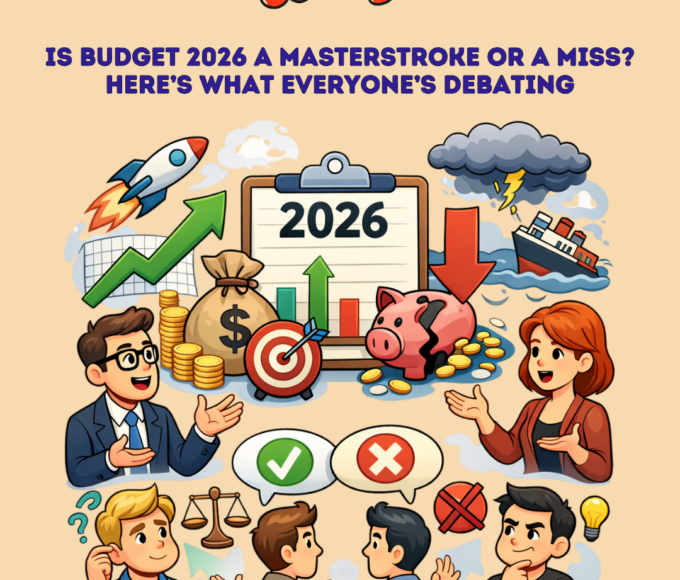Editor – Sowmika Konduru
Introduction
In the relentless pursuit of happiness, humanity has often looked to the tangible, the measurable, the external. Money has arguably been the most entwined aspect in this pursuit. The temptation of riches as a means of achieving happiness has been ingrained in both our individual and communal psyches, from the promise of opulent things to the assurance of financial stability. Can money truly buy happiness? is a question that remains unaddressed.
Philosophers and common people have been grappling with the age-old dilemma of whether money can truly purchase happiness. Many people think prosperity is the key to a happy life because of its attraction and its seeming capacity to offer comfort, security, and independence. But there is much more to the link between wealth and happiness than what meets the eye. The complexities of this relationship are examined in this article, along with the limitations of economic wealth and the significance of more profound, inherent variables in reaching true happiness.
A broad comprehension is necessary to unravel this complex link between economics and happiness. Income and happiness appear to be positively correlated, however the link is not linear, according to research. The marginal benefit of earning more decreases at a certain point, indicating that the amount of money that can be used to buy happiness is constrained.
The Materialistic Mirage:
When it comes to well-being, the initial benefits of money accumulation are indisputable. Money gives people the opportunity to meet their fundamental needs, purchase necessary products and services, and maintain their financial security. The basic components of happiness are comfort, security, and freedom, all of which are influenced by these elements. One major cause of stress and worry is removed when people can afford basic needs like clean, healthy food, good healthcare, and housing. This frees them up to concentrate on other facets of their lives.
But chasing material goods can frequently result in a path with dropping utility. The initial exhilaration that comes with obtaining new items soon wears off and is replaced by a feeling of emptiness and a constant want for more. This hedonic treadmill has the potential to trap people in a never-ending cycle of consumerism, which will eventually leave them feeling unhappy and unfulfilled.
Previous studies in economics have demonstrated that there is a nonlinear link between happiness and income. The marginal advantage of greater wealth gradually decreases at a certain amount, usually around the point at which basic necessities are met and financial stability is ensured. This shows that although money might initially make people happier, its power to do so soon hits a plateau and decreases.
Higher national incomes go together with higher average life satisfaction

Countries with greater average national incomes also tend to have higher average life happiness scores, as can be seen when comparing life satisfaction surveys from around the globe at any given period. Individuals in wealthier nations often report greater levels of life satisfaction compared to those in poorer nations. This is seen in this scatter plot.
In the visualization, each circle corresponds to a single nation. The dots’ vertical position represents the average national self-reported life satisfaction as measured by the Cantril Ladder, which runs from 0 to 10, with 10 representing the highest possible level of life satisfaction. The dots’ horizontal position, on the other hand, represents GDP per capita based on purchasing power parity, or GDP per head after accounting for cross-country price variations and inflation.
Richer individuals in a given country are generally happier than poor people, according to the majority of happiness studies; but, research conducted over longer periods of time and across national boundaries indicates little to no correlation between rising per capita income and rising average levels of happiness. As a whole, happier nations tend to be wealthier than poorer ones; happiness appears to increase with affluence up to a certain degree but not beyond it. However, there is no discernible correlation between average income and happiness level, even in the less wealthy and happier nations, indicating that a variety of other variables, including cultural characteristics, may be at work.
Within nations, happiness is influenced by money. Particularly extreme poverty and deprivation are detrimental to happiness. However, after fundamental necessities are satisfied, variables other than money—like growing ambitions, disparities in relative income, and the security of gains—become more significant. Rising ambitions have been shown to have impacts, and studies have also highlighted how they may contribute to other dubious economic behavior’s like excessive consumption.
Economic Development and Happiness:
Following World War I, Britain’s GNP per person was $5,208 in current US dollars at parity buying power in 1920. Based on the simulation, the average “happiness gap” between individuals earning $10,000 and those earning $40,000 would have been 8.7 points out of 100(see figure 2). When the GNP increased to $6809 in 1940, twenty years later, the predicted “happiness gap” would have decreased to 8.2 points. Thus, the process would continue, and in 2000, when the GNP hit $22190, the difference would have shrunk to 3.4 points.If GDP grows at a rate of 2 percent going forward—not very rapidly, but not stagnant either—the happiness difference will be approximately 0.1 points out of 100 in 2020 and disappear completely by 2040.

Therefore, a noteworthy characteristic of economic expansion seems to be a reduction in the influence of a family’s money on their level of happiness. Because we are comparing happiness at fixed income levels, this is not the declining marginal utility of money. Instead, it implies that wealthy nations provide a standard of living that is not significantly reliant on revenue for each and every one of its residents.
The Pursuit of Experiences – Beyond the Material:
Money may help with experiences that lead to happiness in addition to things that are material. Adventure, cultural immersion, and travel may deepen understanding, promote personal development, and provide lifelong memories. Likewise, allocating resources towards education and individual growth might lead to novel prospects and a feeling of achievement, so augmenting overall well-being.
But it’s important to recognize that income is not the only factor in these encounters. Even in the absence of substantial financial means, happiness may be attained by creativity, ingenuity, and a readiness to appreciate small pleasures. Hobbies, time spent in nature, and mealtimes shared with loved ones are a few inexpensive activities that may provide a great deal of happiness.
The Role of Social Connection:
A vital attribute that money cannot purchase outright is deep social connections. Good connections with friends and family are crucial to a person’s health and greatly enhance happiness. Money cannot buy true love, friendship, or closeness, but it may make social events and gatherings easier.
In actuality, a fixation with money might occasionally impede the emergence of sincere relationships. The pursuit of financial success has the potential to erode the fundamental basis of pleasure by causing alienation, loneliness, and an obsession with oneself.
Beyond Economics: The Internal Compass:
In the end, pleasure needs to be sought after outside of the economic sphere. To maintain happiness, one must nurture an inner feeling of calm, thankfulness, and purpose. Meditation, mindfulness exercises, and time spent in nature may all help cultivate a more upbeat mindset and a greater appreciation for life’s small pleasures.
Volunteering, artistic endeavors, or giving to a cause bigger than oneself are all examples of embracing a purpose beyond oneself that may greatly improve well-being. Compared to transient material possessions, these intrinsic motivators provide a more reliable source of satisfaction.
Policy Implications
Richard Layard (2005) asserts strongly that happiness research has the capability to directly enhance people’s lives through alterations in governmental regulations. He draws attention to the degree to which status influences people’s happiness, leading to a competitive attitude towards job and financial success that ultimately lowers well-being. He also highlights the important benefits of security in the household and at work, as well as the value of trustworthiness and solid interpersonal and social relationships. He points out immediate consequences for labour market and fiscal policy, such as taxing unduly large income increases and reconsidering the benefits of performance-based compensation.
Although a growing number of economists disagree with Layard’s exact suggestions, there is agreement that happiness surveys may be a valuable supplementary tool for public policy. To supplement national income accounts, researchers like Diener and Seligman (2004) and Kahneman, Krueger, and others (2004) support the construction of national well-being accounts. In the meanwhile, Bhutan has replaced gross national product as a gauge of national development with the idea of “gross national happiness.”
Happiness studies conducted in nations that are undergoing economic integration, however, point to the need to emphasize the detrimental impacts of inequality and instability as well as the vulnerability of the near impoverished. The results emphasize the more general idea that growth is a prerequisite for reducing poverty, but it is by no means sufficient. Sustaining the development gains that globalization contributes to is contingent upon other critical factors, including public health investments, institutions capable of enforcing fundamental principles of fairness and equitable treatment, and collaborative investments in social insurance to shield workers from the volatility that frequently comes along with integration into global markets.
Conclusion:
Money is unquestionably a factor in improving well-being, but it is not the primary factor in happiness. A skewed perception of reality and unhappiness can result from concentrating only on financial prosperity. Since happiness is a complicated and multidimensional notion, a comprehensive approach is necessary. Regardless of our financial situation, we may discover real happiness and contentment by building a strong social network, taking part in important activities, and taking care of our inner wellbeing.
Finding happiness is a process, not a destination, that requires constant effort. It is a journey of self-discovery, exploration, and growth, fueled by our internal compass and guided by our values. Although money may be a useful tool on this path, it is ultimately up to each person to figure out what makes them genuinely happy and develop the inner resources necessary to keep that happiness going.
References:
https://ourworldindata.org/happiness-and-life-satisfaction
https://link.springer.com/chapter/10.1007/978-981-33-4972-8_7
https://greatergood.berkeley.edu/article/item/how_much_of_your_happiness_is_under_your_control
https://drivinginnovation.ie.edu/the-pursuit-of-happiness-and-its-economic-benefits/
















Leave a comment